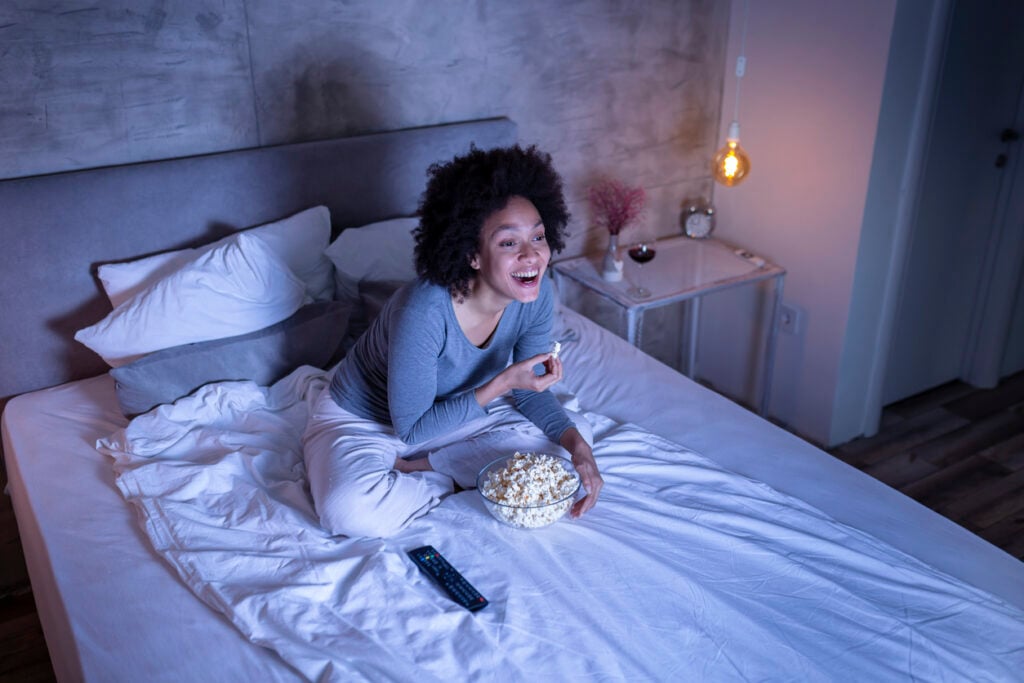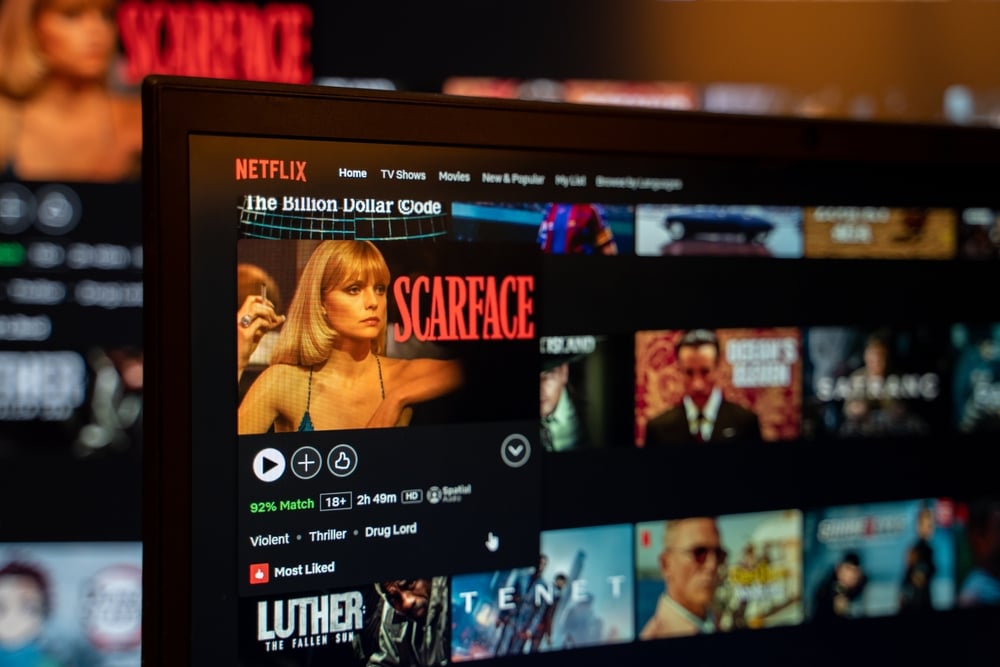Boomers see these things as special, while Millennials can’t imagine living without them.

There was a time when certain things felt like true luxuries—small indulgences that Boomers didn’t take for granted. But fast forward a few decades, and what once felt special is now just a normal part of life for Millennials. The world has changed, and so have expectations. Things that used to be rare, expensive, or even unattainable are now seen as basic necessities or everyday conveniences.
It’s not that Millennials are spoiled—it’s that society has shifted. If you’ve ever wondered why Boomers reminisce about these things while younger generations barely notice them, here’s a look at what’s changed.
1. Having coffee that isn’t instant.

Boomers grew up in a time when instant coffee was the norm, and a fresh-brewed cup from a café was a rare treat. They stirred powdered coffee into hot water and called it a day. Fancy lattes, cold brews, and oat milk cappuccinos? That was unheard of unless you were in a high-end coffee shop.
Today, Millennials consider high-quality coffee an everyday essential, with specialty coffee shops on every corner and gourmet machines at home, according to writers at Perfect Daily Grind. Even the idea of drinking instant coffee feels foreign to many younger people. What Boomers saw as a luxury, Millennials see as their morning survival fuel.
2. Air conditioning in every room.

For Boomers, air conditioning wasn’t a given—it was a luxury that not every home had. Only 2% of homes had air conditioning in 1955, per Jeff Biddle at Science Direct. Many grew up sweating through hot summers with only a fan or an open window to cool them down. Central air was reserved for businesses, movie theaters, or the wealthiest homes.
Now A/C is everywhere, from their apartment to their car to the gym. The idea of living without it feels unbearable. While Boomers learned to tough it out, Millennials see climate control as a basic necessity, not a privilege.
3. Ordering delivery food from almost any restaurant.

Back in the day, ordering food meant pizza or Chinese takeout—if you were lucky enough to live near a place that delivered. For Boomers, dining out was a special occasion, and delivery was even rarer. Now, thanks to food delivery apps, Millennials can get anything from sushi to gourmet burgers brought straight to their door with a few taps on their phone.
Waiting in line or picking up food feels unnecessary when nearly every restaurant delivers. What once felt like a splurge is now just another Tuesday night dinner with “nearly two in five Gen Z and Millennials ordering from them at least one per week,” says Clifton Mark writing for YouGov.
4. Having a personal TV in the bedroom.

Boomers grew up with TV, and it was their preferred medium for entertainment and news, per writers at Media Culture. They remember when families gathered around a single television, and if you wanted to watch something different, you had to wait your turn. Having your own TV—especially in your bedroom—was a luxury few kids experienced. Today, Millennials don’t just have a personal TV; they have streaming services on their laptops, tablets, and phones.
The idea of fighting over what to watch is almost nonexistent when everyone can binge their own shows from separate screens. Boomers saw having a bedroom TV as a privilege; Millennials take personalized entertainment for granted.
5. Flying on a plane more than once in a decade.

For many Boomers, flying was expensive, reserved for major life events, or something they didn’t experience until adulthood. Family road trips were far more common because airfare was simply too pricey.
Millennials fly for weekend getaways, destination weddings, and even work. Budget airlines, cheap travel hacks, and credit card points have made flying a normal part of life. What was once a rare privilege is now just another mode of transportation.
6. Eating fresh fruit and vegetables year-round.

Boomers grew up in a time when produce was seasonal, and if you wanted strawberries in the winter, you were out of luck. Canned or frozen fruits and veggies were staples because fresh options simply weren’t available year-round.
Younger generations can walk into any grocery store and grab avocados, blueberries, and mangoes no matter the season. Global supply chains and advanced farming technology have made fresh food accessible all the time. What Boomers considered a luxury is now just a regular part of a weekly grocery run.
7. Having ice cubes whenever you want.

It may seem small, but Boomers remember when refrigerators didn’t automatically make ice, and having a cold drink meant filling (and refilling) plastic ice trays by hand. If you ran out, you had to wait for more to freeze.
But now you can expect ice on demand, whether from a built-in dispenser, an ice machine at work, or a bag from the store. The idea of waiting for ice cubes feels outdated when technology keeps everything chilled effortlessly.
8. Working remotely instead of commuting.

Boomers spent decades commuting to offices, dressing in business attire, and sitting in cubicles for eight hours a day. Working from home was a privilege reserved for the self-employed or extremely high-level executives.
Millennials, however, consider remote work a standard option, especially after the pandemic shifted workplace expectations. The ability to work from a laptop in pajamas, take Zoom meetings from the couch, and avoid rush hour traffic is something Boomers would have never imagined.
9. Streaming any song instantly instead of buying records or CDs.

Boomers grew up in an era where music had to be purchased—whether it was a record, cassette, or CD. You had to save up to buy an album or hope your favorite song came on the radio.
Having access to millions of songs at their fingertips seems normal for Millennials. Spotify, Apple Music, and YouTube make it possible to listen to anything, anytime, without ever owning a physical copy. What Boomers saw as a hard-earned treat, Millennials see as an instant, limitless resource.
10. Grocery delivery straight to your door.

Weekly trips to the store, pushing carts through aisles and standing in long checkout lines were common for Boomers. If you wanted food, you had to go get it—end of story. Grocery delivery was something only the ultra-rich had.
Now? You can order everything online and have it delivered in hours. From Amazon Fresh to local delivery services, food shopping has become a task that doesn’t even require leaving the house. Boomers see this as an extravagant convenience; Millennials see it as a time-saver they can’t live without.
11. Access to endless entertainment without commercials.

Boomers had to watch whatever was on TV, and if they missed their favorite show, too bad—they had to wait for a rerun. Commercials were unavoidable, and recording shows required setting up a VCR.
Millennials, on the other hand, can binge-watch entire seasons with no interruptions, skip commercials, and pause live TV at any moment. Streaming services, YouTube, and digital downloads have made entertainment instant, endless, and completely customizable. These options were unavailable for Boomers felt but are now just the way people consume media.
12. Driving a car that starts reliably every time.

Boomers remember a time when cars weren’t always dependable. You had to let them warm up in the winter, deal with constant repairs, and sometimes even hope they started at all. Car maintenance was a major part of daily life.
Younger adults expect their cars to start with the push of a button and rarely deal with breakdowns. With modern engineering, extended warranties, and roadside assistance, unreliable cars are almost a thing of the past. What Boomers saw as normal frustrations, Millennials barely think about.
13. Having high-speed internet everywhere.

Boomers grew up without the internet at all, and even when it became mainstream, it was dial-up—slow, unreliable, and constantly interrupted by phone calls. Millennials expect high-speed WiFi everywhere: at home, at coffee shops, even on planes.
Buffering? Waiting for pages to load? That feels ancient to a generation raised on instant access. Boomers once saw the internet as an incredible innovation; Millennials consider a basic necessity for daily life.
